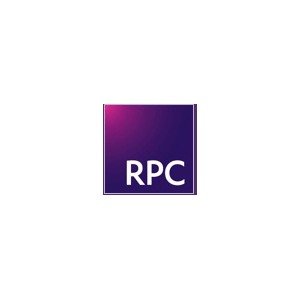Best Patent Lawyers in Quarry Bay
Share your needs with us, get contacted by law firms.
Free. Takes 2 min.
List of the best lawyers in Quarry Bay, Hong Kong
About Patent Law in Quarry Bay, Hong Kong
Patent law in Quarry Bay, Hong Kong, is governed by the Patents Ordinance (Cap. 514), which aligns with international standards and practices. The Intellectual Property Department (IPD) of Hong Kong handles patent applications, ensuring local inventors and businesses can protect their inventions with proper legal backing. Quarry Bay, being a business hub, is home to numerous companies and startups that seek patent protection to maintain a competitive edge in the market.
Why You May Need a Lawyer
Obtaining a patent can be a complex process and requires a nuanced understanding of both the law and the technical aspects of the invention. Common situations where legal help might be necessary include:
- Filing a patent application: Assistance in drafting and submitting patent applications to meet legal requirements.
- Defending a patent: Legal support in the event of patent infringement or disputes over patent rights.
- Patent commercialization: Guidance on licensing agreements and commercial exploitation of patents.
- Patent searches and analysis: Conducting thorough prior art searches and feasibility analyses before filing.
- Opposing or revoking patents: Initiating opposition or revocation proceedings to challenge existing patents.
Local Laws Overview
The Patents Ordinance in Hong Kong offers two types of patents: standard patents and short-term patents. Standard patents provide protection for up to 20 years and are based on applications filed in designated foreign jurisdictions. Short-term patents last for a maximum of eight years and require a direct application to the IPD. Hong Kong adheres to the "first to file" principle, meaning the person who files a patent application first has the right to the patent. Local law also requires the disclosure of new inventions to be clear and complete enough for the invention to be performed by someone skilled in the art.
Frequently Asked Questions
What is a patent?
A patent is a form of intellectual property that gives the patent owner exclusive rights to an invention for a certain period, in exchange for the public disclosure of the invention.
How can I apply for a patent in Hong Kong?
You can apply for a patent through the Intellectual Property Department in Hong Kong. You may choose between a standard patent or a short-term patent, depending on the nature of your invention.
How long does patent protection last in Hong Kong?
Standard patents can provide protection for up to 20 years, while short-term patents offer protection for up to 8 years, provided all renewal fees are paid timely.
What is the "first to file" principle?
The "first to file" principle means that patents are granted to the first person to file the application for an invention, rather than the first person to invent it.
Can a patent be challenged in Hong Kong?
Yes, patents in Hong Kong can be challenged through opposition proceedings or invalidation actions, which must be filed with the IPD.
What is a prior art search?
A prior art search is conducted to identify existing inventions and publications that may be relevant to the novelty and originality of an invention seeking a patent.
Do I need a prototype to apply for a patent?
No, a prototype is not required when applying for a patent, but your application must sufficiently disclose how to make and use your invention.
How much does it cost to file a patent application?
The cost varies depending on the type of patent and the complexity of the invention. Fees include filing, examination, and maintenance fees.
Can I apply for a patent if I have publicly disclosed my invention?
Public disclosure of your invention prior to filing a patent application may affect its eligibility due to the lack of novelty.
What should I do if someone infringes on my patent?
If you suspect patent infringement, it is advisable to consult a patent lawyer to discuss your options for enforcement and legal proceedings.
Additional Resources
For those seeking more information on patent law in Quarry Bay, Hong Kong, consider these resources:
- Intellectual Property Department of Hong Kong: Provides comprehensive guidelines and forms for patent applications.
- The Hong Kong Institute of Patent Attorneys: Offers professional resources and networking opportunities for patent professionals.
- World Intellectual Property Organization (WIPO): An international resource for global patent information and policies.
Next Steps
If you need legal assistance in patent matters in Quarry Bay, Hong Kong, consider taking the following steps:
- Conduct an initial consultation with a patent attorney to assess your needs and explore your options.
- Gather all necessary documentation and details related to your invention or patent issue.
- Research and select a qualified patent attorney or firm with experience in your specific area of interest.
- Work closely with your legal advisor to draft, file, and manage your patent application or response to litigation effectively.
Lawzana helps you find the best lawyers and law firms in Quarry Bay through a curated and pre-screened list of qualified legal professionals. Our platform offers rankings and detailed profiles of attorneys and law firms, allowing you to compare based on practice areas, including Patent, experience, and client feedback.
Each profile includes a description of the firm's areas of practice, client reviews, team members and partners, year of establishment, spoken languages, office locations, contact information, social media presence, and any published articles or resources. Most firms on our platform speak English and are experienced in both local and international legal matters.
Get a quote from top-rated law firms in Quarry Bay, Hong Kong — quickly, securely, and without unnecessary hassle.
Disclaimer:
The information provided on this page is for general informational purposes only and does not constitute legal advice. While we strive to ensure the accuracy and relevance of the content, legal information may change over time, and interpretations of the law can vary. You should always consult with a qualified legal professional for advice specific to your situation.
We disclaim all liability for actions taken or not taken based on the content of this page. If you believe any information is incorrect or outdated, please contact us, and we will review and update it where appropriate.









